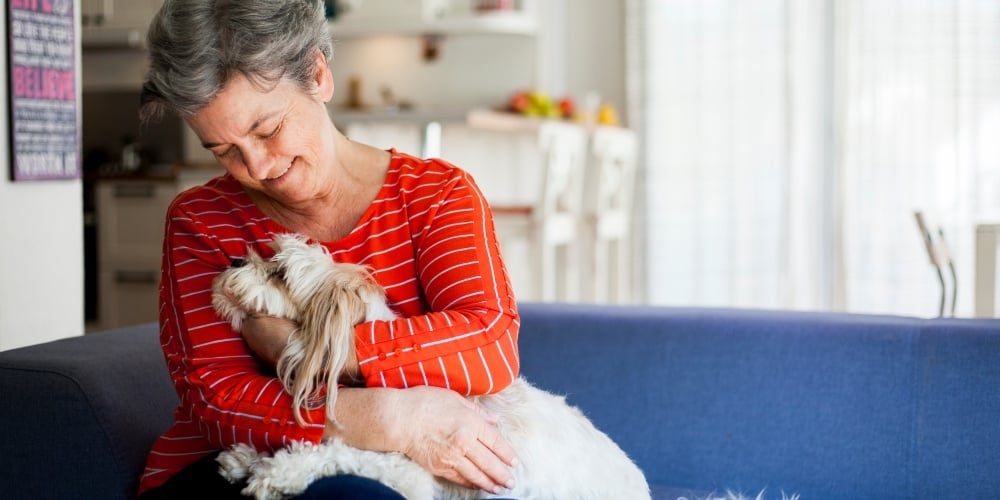
Is your mom having a hard time changing her cat’s litter box? Is your dad’s dog losing weight, or is the water bowl often empty when you arrive?
You know your parent’s pet brings them so much comfort and joy, not to mention a sense of purpose. However, what happens when your aging parent starts struggling to care for their companion?
Owning a pet is indeed a big responsibility, and caring for an animal is a lot of work. Dogs need walking and to be taken outside to go to the bathroom. Cats do not demand as much attention, but their litter box needs to be cleaned regularly. All pets require food and vet visits.
When you consider that many older adults have a harder time getting around, experience memory problems, and live on a fixed income, it’s no wonder that many aging pet owners find themselves unable to care for their animals.
Older parents don’t always want to tell their children about problems. That’s why it can be so hard to know when an aging parent can no longer care for their pets. Here are some signs to watch for.
6 Signs Your Parent Is Struggling to Care for Their Pet
Some of the most common reasons older adults have a hard time caring for their companions are forgetfulness and decreased physical mobility.
Here are some warning signs that your parent is forgetting to care for their pet or physical limitations are getting in the way of providing responsible pet care:
- The water bowl is often empty when you arrive
- The pet is gaining or losing weight
- The pet is having more frequent accidents in the house
- Your parent’s home smells of pet odor and waste
- They can no longer walk the dog or change the cat’s litter box
- The pet seems to be suffering, developing behavioral problems, or simply not thriving
Fortunately, there are many things you can to do help your aging parent care for their pet.
14 Tips for Helping Your Older Parent Keep Their Pet
Follow these 14 tips to help keep both your aging parent and their furry friend healthy and happy.

If you notice that your aging parent is struggling to handle the tasks associated with caring for their pet, have an honest discussion with them about ongoing pet care.
Let them know that you know how much their pet means to them and that you want to help ensure they’re together as long as possible. Separation isn’t the only option. There are many services and senior living communities that can ensure the health and happiness of seniors and their pets.
For more tips on caring for an aging parent, subscribe to Highgate Senior Living’s monthly newsletter, Purposeful Living, today.






